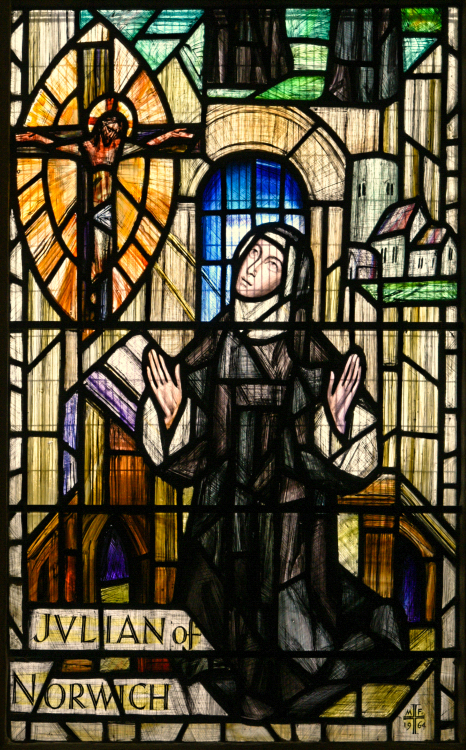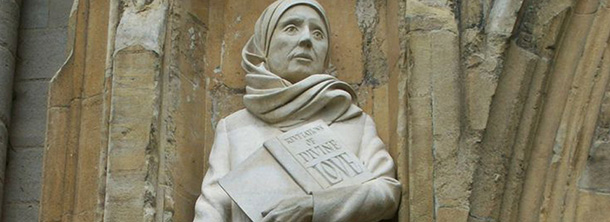

Julian's theology is eschatologically orientated. One aspect of Christ stressed by Julian is his "motherhood." Many earlier writers, including Anselm, had written of Christ's motherhood, but Julian wrote more extensively on this theme. The all-encompassing theme of Julian's Revelations is the compassionate love of God as universally manifested throughout the process of creation and as focused in the passion of Jesus, whose delight was to suffer for his beloved humankind. It was probably from this saint that she took the name by which she is known. 342).Īt some time in her life Julian became an anchoress, living in a cell attached to the church of Saint Julian in King Street. And I saw very certainly in this and in everything that before God made us he loved us, which love was never abated and never will be" (Colledge and Walsh, Showings, p. Some time later Julian wrote a description of these showings that is now referred to as the "short text" or "short version." Twenty years later, after profound meditation, she felt she had come to a fuller understanding of the showings, and she wrote a much longer version, concluding: "So I was taught that love is our Lord's meaning.

Her mother, her parish priest, and possibly others were with her at these times. At what seemed the point of death, she revived and received what she described as fifteen "showings of God's love" on the following day she had a sixteenth such experience. In May 1373, when Julian was thirty years old, she became severely ill. 604), from whose Life of Saint Benedict she quotes. around 1327), but the only two writers whom she mentions by name are Dionysius the Areopagite (c. She was probably familiar with the writings of William of Saint-Thierry (d. Although scholars have traced many general theological influences in Julian's book, specific influences are hard to identify, so thoroughly assimilated are they into a theology that is at once deeply traditional and highly original. Highly literate -despite a polite disclaimer in her book Revelations of Divine Love -and demonstrating a knowledge of the Vulgate rare for a layperson of her day, she was the first woman to compose a literary work in English. Against a background of war, plague, social turmoil, and religious unrest she shared in a flowering of English mysticism along with Walter Hilton, Richard Rolle, Margery Kempe, and the anonymous author of The Cloud of Unknowing. Julian lived in the century in which Europe was ravaged by the Black Death, and England and France were torn by the Hundred Years War.

JULIAN OF NORWICH (1342 –1416?), known as Lady Julian, Dame Julian, and Mother Julian, was an English mystic and Christian theologian.


 0 kommentar(er)
0 kommentar(er)
